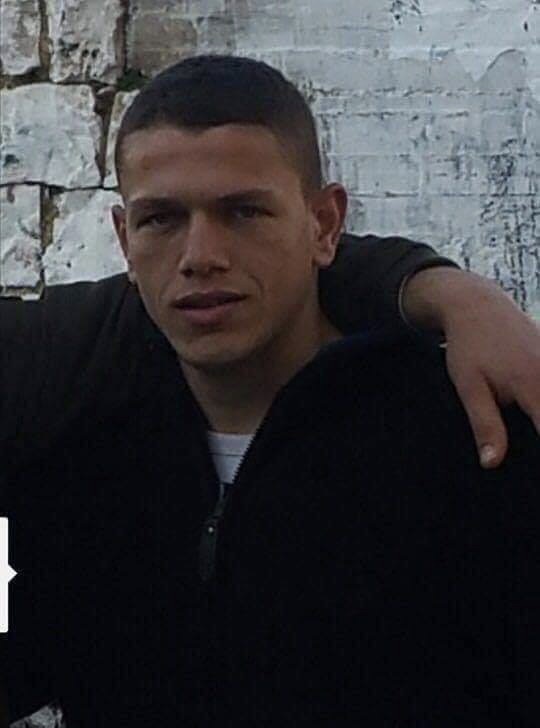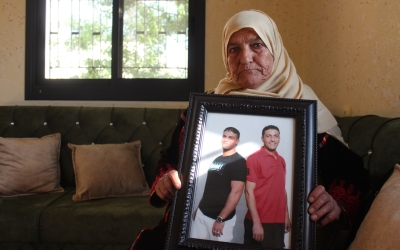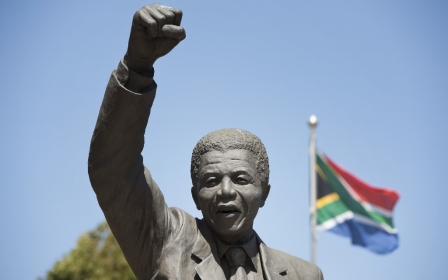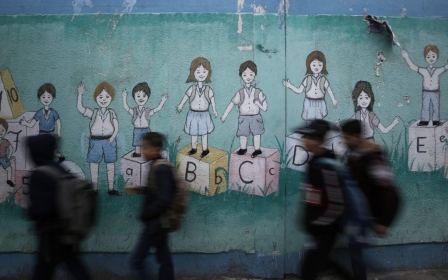‘Nour was returned to us dead’: Mystery surrounds death of Palestinian prisoner
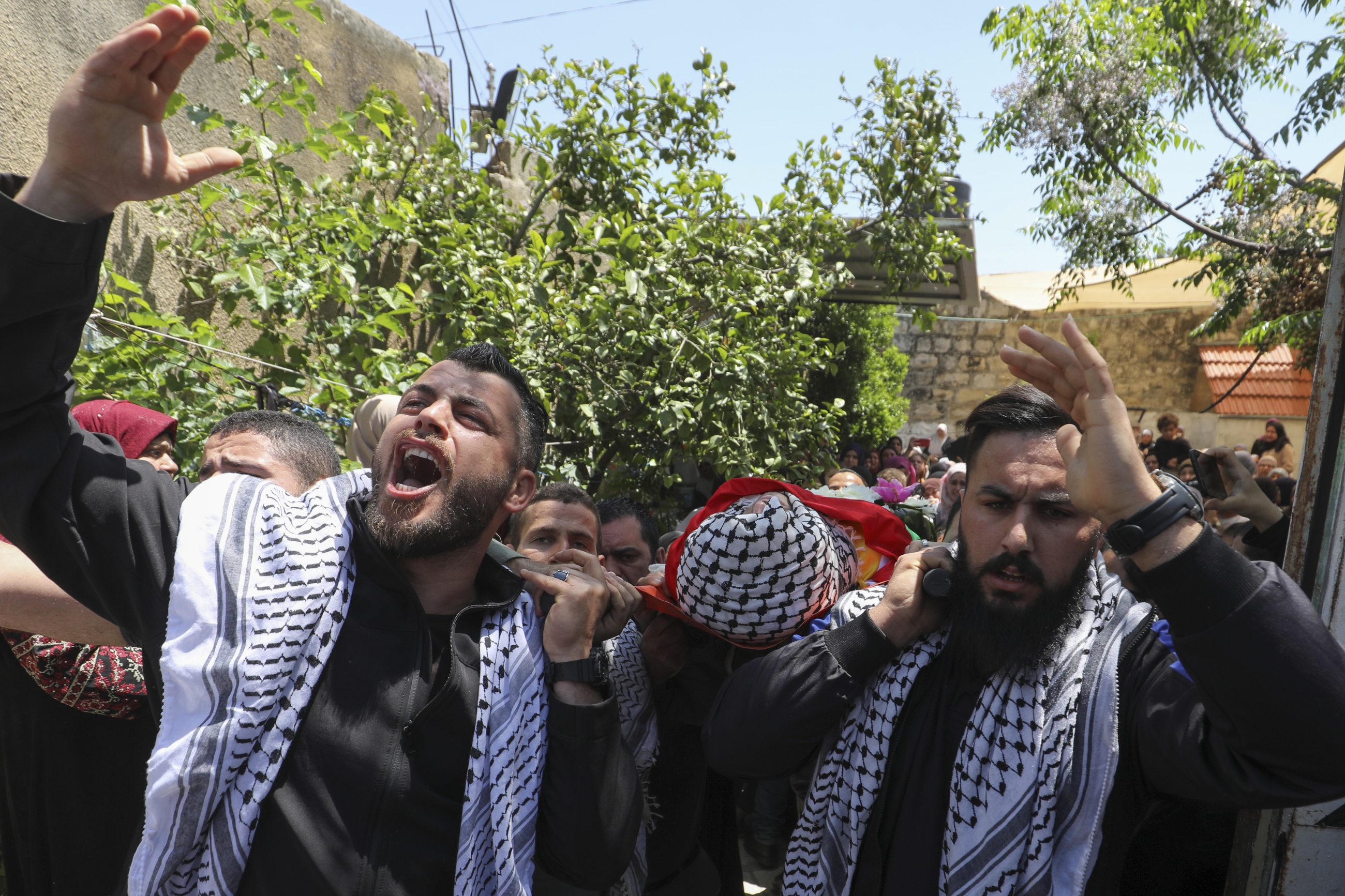
During his family’s final visit to see him in February at Israel’s Naqab prison in the country’s south, Palestinian prisoner Nour Jaber Barghouti asked them to send him a photograph of trees he had planted in the yard of their home before he was detained.
For years, Nour had monitored the growth of his trees from behind bars, through pictures.
This time, Nour wasn’t able to see his beloved yard; he was found unconscious on the floor of the Naqab prison bathroom on 21 April.
Both Israeli and Palestinian authorities said the 23-year-old died after he fainted and fell.
Nour, however, had no known pre-existing medical conditions, raising a controversial debate in the Palestinian community over whether this account is true, or whether there were efforts to cover up a potential suicide, due to religious reasons that prohibit the act.
New MEE newsletter: Jerusalem Dispatch
Sign up to get the latest insights and analysis on Israel-Palestine, alongside Turkey Unpacked and other MEE newsletters
While the final results of Nour’s autopsy have not yet been made public, an official from the Commission for Prisoners' Affairs, Qadri Abu Bakr, told Middle East Eye that preliminary results reveal that he had indeed committed suicide.
“This is what the Israelis are claiming, but we are still waiting for the results of the blood test,” he said.
A detainee inside the Naqab prison who knew Nour also told MEE on condition of anonymity that Nour had committed suicide by hanging, and that the prison authorities had announced this to them. Nour was reportedly standing on a bucket in the bathroom when he hung himself, causing a loud noise when he fell.
The source added that the Palestinian factions in the prison decided not to hold a funeral for Nour, or to take any protest measures, such as returning meals or refusing to cooperate with prison authorities - as they usually do - so as not to encourage other prisoners to follow in Nour’s footsteps.
Denouncing this account, the Popular Front for the Liberation of Palestine (PFLP), said in a statement that “any account that speaks of his suicide is incorrect and inaccurate, and is offensive to the sacrifices of the prisoners’ movement and its continuous battle inside the [Israeli] occupation’s prisons.”
And when asked by MEE, Nour’s family said they do not believe the suicide claims.
Nour’s autopsy was conducted at the Abu Kabir forensic institute in Tel Aviv, with the participation of a Palestinian forensic doctor delegated from the Palestinian Ministry of Justice, Ashraf al-Qadi.
Nour’s body was returned to his family on Monday after the autopsy’s completion. He was laid to rest on Tuesday.
Nour’s brother, Mohammad, said he has doubts that his sibling took his own life.
“If he wanted to commit suicide, he would have done it a year ago, when his psychological state was very bad,” he told MEE.
“If it is proven that Nour did actually commit suicide, it would be due to the prison conditions and as a result of the [Israeli] interrogation.”
According to the source in the prison, just after 8pm, while the prisoners were having dinner, Nour went to shower after he had done some exercise – a part of his daily routine.
Sometime later, the prisoners heard a loud fall in the bathroom and rushed there to see what had happened. They tried to break the door down but were unsuccessful, and Nour was not responding to their calls, which led them to cause a big verbal commotion, calling on the prison guards to intervene.
In testimonies to the Commission for Prisoners' Affairs, the prisoners said it took the Israeli prison authorities 45 minutes to arrive and intervene, by which time Nour had lost any chance of surviving.
The commission said Israel was responsible for Nour’s death, which it attributed to medical negligence, a widespread phenomenon in Israeli prisons.
“They [Israelis] know very well why Nour reached the point of taking his own life. This happened because of the interrogation that he underwent and due to the horrible conditions inside the Naqab prison, which we all suffer from,” the source said.
Barghouti’s death brings the total number of Palestinians who have died in Israeli prisons since 1967 to 223. In 2019 alone, three prisoners died in Israeli custody.
The bodies of the three prisoners who died last year, along with two others who died in the years 1980 and 2018, are still being held by Israeli forces.
Disturbing interrogation
Nour, whose name means ‘light’, was arrested by the Israeli army in 2016. Israeli military courts handed him an eight-year sentence after charging him with shooting at a military infrastructure north of the West Bank city of Ramallah.
Nour had served half of his sentence when he died.
MEE reached out to several human rights organisations and the Palestinian Prisoners' Society to enquire about Nour’s interrogation period but found that none of the groups had enough information, claiming that a private lawyer was following up with his file.
When MEE contacted the private lawyer, Ismaeel al-Tawil, and asked about the interrogation, the lawyer hung up the phone.
Nour’s family told MEE that upon being detained, he underwent an arduous interrogation period that lasted 180 days in total, split in two rounds, during which he was kept in solitary confinement.
He emerged from the interrogation with evident trauma and psychological issues and had not received any kind of mental support inside the prison, according to his family.
His brother, Mohammad Barghouti, said that following the interrogation, Nour suffered from consistent headaches, dizziness, shaking, and defects in his nervous system.
“We did not know what he suffered from exactly. The prisoners were taking care of him, and he seemed to be improving.”
One former prisoner, who was released a year ago from the Naqab prison, and who also spoke on condition of anonymity, said that Nour told him and several other inmates that Israeli interrogators used electric shocks on him.
Recalling what Nour had mentioned to him about the interrogation, Mohammad said “the second round was more difficult. He told me that he wasn’t permitted to sleep for several days. He described his cell as having white walls, and blotches of blood everywhere.”
Mohammad added that Nour could hear the “sound of people screaming all the time” and that the prison guards would “dump water on him every time he fainted”.
Nour was first interrogated for 120 days at Asqalan prison. He told his family that he did not know where he was taken for the second round. Since he was not informed, it is likely that he was taken to one of Israel’s secret prisons.
Planning for freedom
Before his arrest, Nour was building solar panels for his family home in the village of Aboud, north of Ramallah. At other times, he would work in farming.
Awaiting the day he would be free, his brother said the family had “completed building a house for him”.
“He had asked us not to do some of the final things because he wanted to do them on his own. He was always planning a better life after being freed from detention”.
During Nour’s entire detention period, his mother kept all of his belongings in place, and prevented his brothers from entering his room or wearing his clothes, his brother said.
"We were always waiting for Nour to return - we were planning to hold a big party upon his liberation. Today, Nour was returned dead to us, and the cause of his death is the [Israeli] occupation.”
Middle East Eye delivers independent and unrivalled coverage and analysis of the Middle East, North Africa and beyond. To learn more about republishing this content and the associated fees, please fill out this form. More about MEE can be found here.


